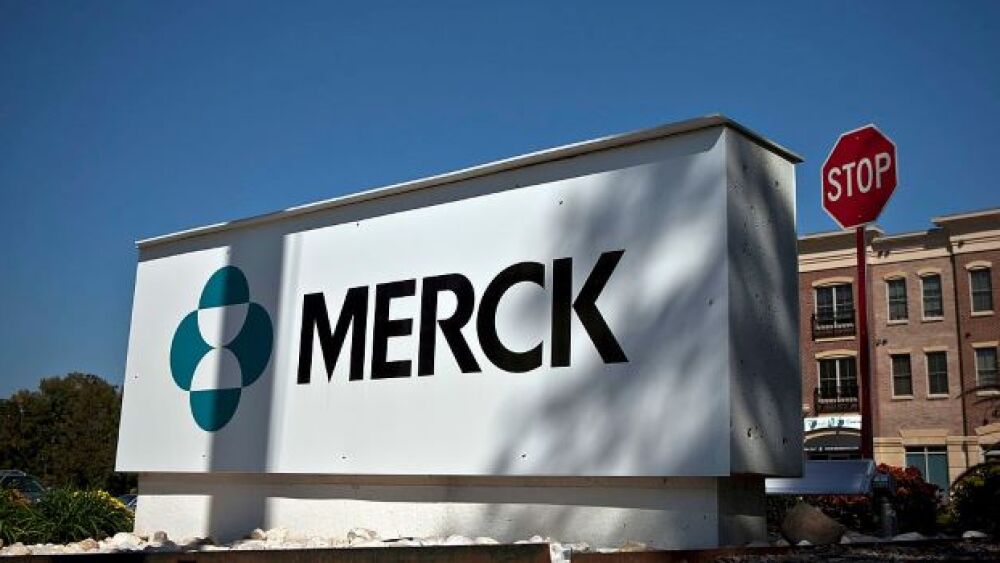Merck held a conference call Thursday morning to discuss its Q1 2022 earnings. The company reported a 50% growth in revenue, increasing its worldwide sales to $15.9 billion.
Courtesy of Kena Betancur/Getty Images
Merck held a conference call Thursday morning to discuss its Q1 2022 earnings. The company reported a 50% growth in revenue, increasing its worldwide sales to $15.9 billion.
As anticipated, Merck’s COVID-19 antiviral treatment, Lagevrio (molnupiravir) played a role in its robust sales. The therapeutic has received multiple authorizations for use across the globe with robust data supporting its effectiveness. Lagevrio accounted for $3.2 billion of Merck’s worldwide sales, and 6.4 million courses of the treatment were delivered to more than 30 countries. The company anticipates delivering a total of 10 million courses that have been committed from supply and purchase agreements through Q1.
“As the pandemic evolves, there continues to be regional surges in infection rates with the emergence of new COVID-19 variants. Some of these are resistant to specific monoclonal antibody regimens and appear to be able to evade some vaccine protection, highlighting the importance of effective and available antiviral options,” Dean Li, president of Merck research laboratories, said in the conference call.
Li noted the recent Phase III data the company presented added to the growing body of evidence that the treatment showed antiviral properties and a high barrier to resistance. “We believe that its low propensity for drug-drug interactions makes it an important option for patients,” Li added.
Merck also highlighted its ever-growing oncology portfolio. Keytruda’s sales increased 27% in Q1, raking in $4.8 billion in sales.
“In the U.S., Keytruda continues to demonstrate strong growth across all key tumors and it’s benefitting from recent launches in earliest stage cancers, including triple-negative breast, renal cell carcinoma and melanoma. Keytruda is currently approved to treat five indications of early-stage cancers, and we are excited about the potential to expand into lung cancer based on the encouraging data,” Caroline Litchfield, Merck’s chief financial officer, noted. “In the metastatic setting, Keytruda continues to maintain its leadership position in non-small cell lung cancer, capturing eight out of ten eligible new patients.”
Another one of Merck’s key oncological assets, Lynparza, grew 20% in sales, driven by its continued uptake in metastatic breast cancer. In cancer prevention efforts, Merck’s HPV vaccine Gardasil raised $1.5 billion in sales, driven by robust demand, particularly in China, and increased U.S. sales due to the timing of the Centers for Disease Control and Prevention purchases.
Beyond sales, Merck saw a flurry of U.S. Food and Drug Administration approvals for its oncological therapies in Q1. The company received six FDA approvals in oncology, including approval for Lynparza’s use in early-stage breast cancer and a fourth FDA approval in gynecological cancers for Keytruda. Merck is also gaining traction in its robust Phase III clinical trial evaluating both Lynparza and Keytruda in prostate cancer.
Merck is also well positioned to make strides in its cardiovascular pipeline. The company anticipates eight potential approvals across the pipeline by 2030. Additionally, Merck provided updates to its vaccine program, announcing that it received Breakthrough Therapy designation from the FDA for V116, an investigational 21-valent pneumococcal conjugate vaccine. Clinical trials for V116 are anticipated to move into Phase III this year.





